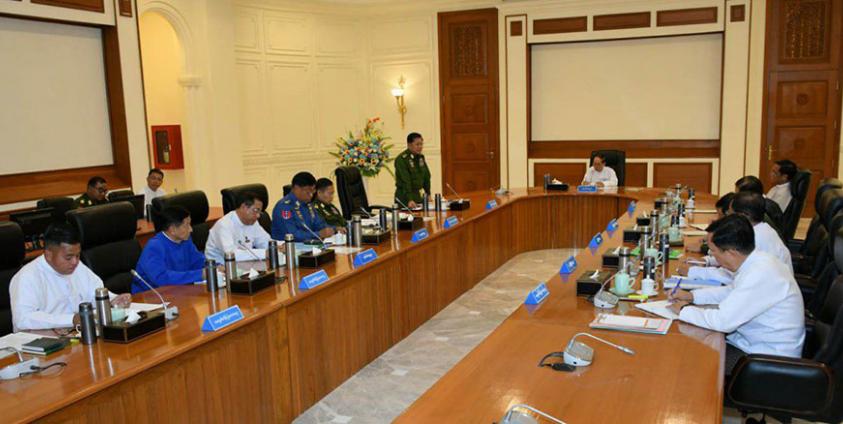On November 8th, the Military Council convened an emergency meeting of the National Defense and Security Council in Naypyidaw, in response to a stunning series of bases and outposts captured by ‘Operation 1027’ launched by the Three Brotherhood Alliance in northern Shan State. Political analysts have suggested that confrontations across the country may intensify following the meeting.
The Three Brotherhood Alliance, consists of the Myanmar National Democratic Alliance Army (MNDAA), Ta'ang National Liberation Army (TNLA), and Arakan Army (AA) They revealed that during the first 13 days of 'Operation 1027,' commencing on October 27th, they successfully seized approximately 150 Military Council outposts. They also secured a significant quantity of weapons and ammunition when they seized control of six towns.
During the Security Council meeting, Junta leader Min Aung Hlaing revealed that the Kachin Independence Army (KIA) and the People's Defense Force (PDF), are jointly involved with the Three Brotherhood Alliance fighting against the Junta forces in northern Shan State, while also pointing out an uptick in military buildup by the United Wa State Army (UWSA) in its controlled territories.
Min Aung Hlaing remarked that given the conflicts’ extension to the border with China, he is conscientiously avoiding damage to the relationship between the two countries, while simultaneously issuing a threat of retaliation against the Three Brotherhood Alliance.
Acting President U Myint Swe, perceived as a puppet of Min Aung Hlaing, also warned that a failure to address the escalating situation in northern Shan State, could lead to the fragmentation of the country.
Political analyst U Than Soe Naing remarked that should the repercussions of 'Operation 1027' extend to mainland regions like Sagaing, Magway, and Mandalay, it could mark a major turning point in the ongoing revolution against the military dictatorship.
He explained ,"As Operation 1027 unfolds in northern Shan State, the Karenni National Progressive Party (KNPP) has declared Operation 1107 in Karenni (Kayah) State. Anticipate simultaneous armed resistance in areas with other ethnic armed organizations (EAOs). The coup Junta leaders might already understand that, if revolutionary battles intensify in Sagaing, Mandalay, and Magway, the capital Naypyidaw could be threatened. That is why it is likely that they will respond more robustly after the Security Council meeting.’
The success of Operation 1027 has fostered greater unity among diverse ethnic groups nationwide, reinforcing their commitment to oust the military dictatorship. As the Military Council struggles to contain the ongoing crisis, there's speculation among political analysts that, in a desperate move some Ethnic Armed Organizations (EAOs) may be labeled as terrorist organizations by the coup Regime.
U Pe Than, another political analyst told DMG ,"We'll have to wait and see the outcomes of the Security Council meeting. There's a chance the Military Council might label the operating organizations as terrorists. Alternatively if there is widespread unrest, the Military Council could make some compromises, both in terms of military and political matters.”
But any genuine compromise would be out of character with the history of the armed forces since New Win’s coup since 1962.








